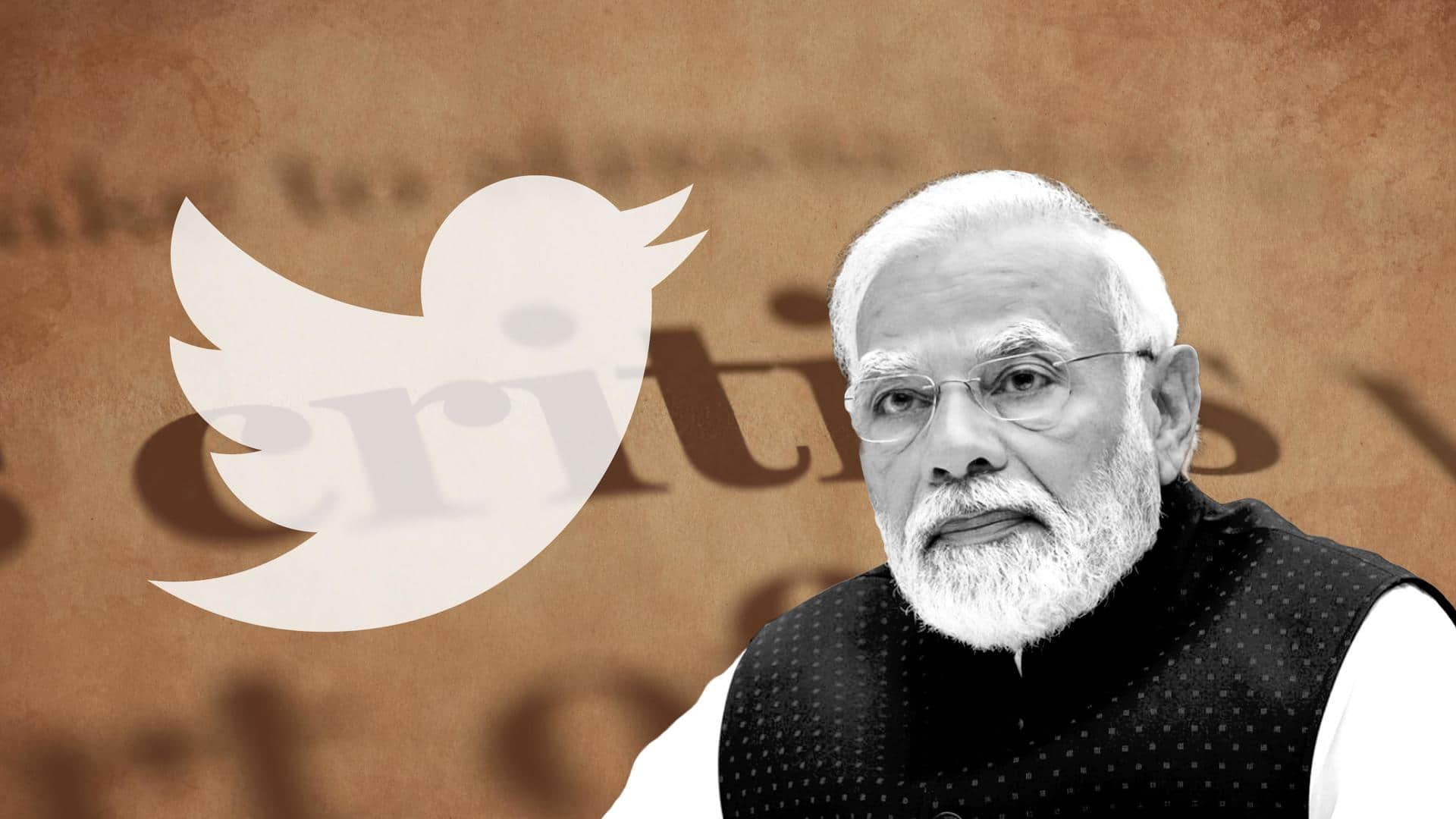
Twitter accused of censoring accounts on behest of Indian government
What's the story
When Elon Musk acquired Twitter, he termed it a triumph of free speech. Now, the platform is being accused of being a pawn in the Narendra Modi government's move against dissenters and critics. The social media site reportedly blocked scores of prominent journalists, politicians, and activists in India and abroad at the behest of the Indian government.
Context
Why does this story matter?
Twitter's relationship with India's ruling class has always been strained. Considering the platform's popularity among politicians, journalists, and activists, the government has always made efforts to control the discourse on Twitter. The company even sued the Indian government in July last year. The platform accused New Delhi of abusing its power to order Twitter to remove accounts arbitrarily and disproportionately.
Punjab
Twitter suspended over 120 accounts
The recent accusation against Twitter comes in the backdrop of the Indian government's manhunt for radical pro-Khalistan leader Amritpal Singh. Last week, the government shut down internet services in Punjab. Following this, Twitter suspended over 120 accounts. Among the blocked accounts were Canadian politician Jagmeet Singh, Sangrur MP Simranjit Singh Mann, and Canadian poet Rupi Kaur, among others. BBC Punjabi News was also suspended.
Censorship
Suspended users called out Twitter and Indian government
Those whose accounts got suspended called out both Twitter and the Indian government. Jaskran Sandhu, the co-founder of a Toronto-based outlet focused on the Sikh diaspora, termed the Indian government's action "draconian." He also termed the suspension of his account a "blanket censorship" by the government of India. Twitter has yet to give any specific details about why it banned certain accounts.
Reason
Government is protecting its reputation through censorship: Activists
Why did the Indian government ask Twitter to block some accounts? According to human rights lawyer Arjun Sethi, social media companies have become "handmaidens to authoritarianism" in India. Others have suggested that the government is censoring content that does not portray itself and the Prime Minister in a positive light. Neither Twitter nor the Indian government has responded to these accusations.
Musk prefers adhering to laws in countries where Twitter operates
The criticism is not just directed toward the Indian government. Many have talked about how Twitter has changed since Musk's takeover. Prateek Waghre of the Internet Freedom Foundation said Twitter's willingness to push back against the government's directives has reduced since Musk became the company's owner. Musk himself has talked about his preference to "hew close to laws of countries" where Twitter operates.
Twitter Post
Musk's response to Twitter's censorship in India
First I’ve heard. It is not possible for me to fix every aspect of Twitter worldwide overnight, while still running Tesla and SpaceX, among other things.
— Elon Musk (@elonmusk) January 25, 2023